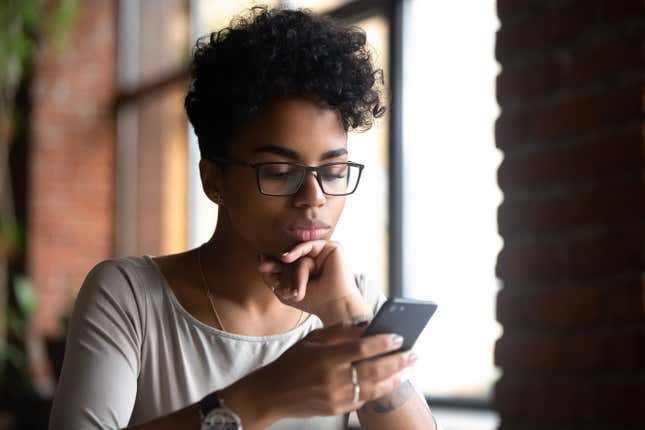
Shahem Mclaurin knows that it is difficult for people of color to find mental health professionals who look like them. And the licensed social worker is well aware that it is one of the main reasons many people of color don’t get the care they need. So, Mclaurin is one of a growing number of Black mental health professionals who are championing the cause of representation in the field of mental health and trying to reach people who need help where they are, on TikTok. “I am a Black, queer therapist, and I want to showcase myself being fully that,” Mclaurin said. “I always say, ‘My durag is part of my uniform.’” In that durag, Mclaurin keeps it real, answering tough questions and sharing raw personal stories.
According to the Health and Human Services Office of Minority Health, Black Americans are more likely to report lasting feelings of emotional distress, including sadness, hopelessness and worthlessness, than white Americans. However, only one in three African Americans who need mental health care are actually getting it, which is likely due to the lack of diversity in mental health. According to the American Psychological Association, only 4 percent of psychologists in this country are Black.
With over 1 billion users each month, TikTok already has a massive built-in audience. And just like hair tutorials and cleaning hacks, it has become an increasingly popular platform for people searching for content posted by mental health professionals. The hashtag #mentalhealth has garnered more than 28 billion views. Other related hashtags specific to Blacks, such as #blacktherapist and #blackmentalhealth, have received millions of views on the platform, making it the perfect place for mental health professionals to find people looking for help who don’t know where else to turn.
Kojo Sarfo, a Los Angeles-based psychiatric mental health nurse practitioner, has gained 2 million followers who watch her dances and skits about attention deficit hyperactivity disorder, eating disorders and other mental health conditions. But while some mental health professionals use TikTok to put a lighter spin on topics that can be difficult to discuss, others use the platform as an extension of their practice, like Virginia-based psychologist, Patrice Berry. Because there is a waiting list for her private practice, she uses TikTok as a forum to respond to questions.
But Black mental health professionals have joined other Black TikTok creators who have taken issue with the platform for preventing their content from being seen by as wide an audience as possible. In June of 2021, a group of Black content creators initiated a creative strike to protest their inability to receive credit for creating viral dances and other content as white creators took credit and got rich off of their ideas. Some Black mental health professionals on TikTok say users have questioned their credentials or tagged a white therapist to confirm their information. TikTok is responding to the criticism by saying that it is training its teams on cultural appropriation and implementing initiatives designed to promote Black content creators.
But these Black mental health professionals are all very careful to point out that watching a few videos online can’t take the place of real professional help. And they warn users of the danger of misinformation that can find its way onto the platform, as users who do not have adequate mental health education or training upload content of their own.
Marquis Norton, a licensed professional counselor and assistant professor at Hampton University, says he uses the platform to encourage people to seek more in-depth resources outside the app. Norton says he’s concerned that people may try to diagnose themselves using the information they find online. He even recorded a video directing people to places they can search for therapists.

